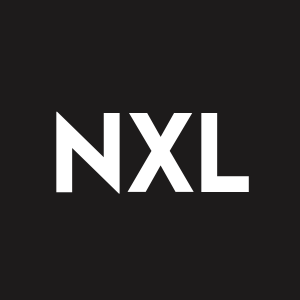Nexalin Technology Reconstitutes Scientific Advisory Board with Leading Experts to Advance Alzheimer’s Program Amid Encouraging Data
Rhea-AI Summary
Nexalin Technology (NASDAQ: NXL) has reconstituted its Scientific Advisory Board (SAB) with three leading experts to advance its Alzheimer's disease program. The company appointed Dr. Mingxiong Huang, Dr. David Owens, and Dr. Abe Scheer to guide its clinical development of Deep Intracranial Frequency Stimulation (DIFS™) technology.
Nexalin's Gen-2 SYNC and Gen-3 Halo™ headset delivers DIFS™, a proprietary waveform technology that can penetrate deep brain structures. Recent data suggests DIFS™ may promote neuroplasticity and functional recovery in memory and executive function regions. The company plans to initiate new Alzheimer's-focused clinical studies in Q3 2025, incorporating cognitive testing, imaging biomarkers, and MEG-guided metrics.
Positive
- Appointment of three renowned experts with specialized expertise in neurology and neuroimaging to the Scientific Advisory Board
- Promising published and internal data supporting DIFS™ technology's potential in treating Alzheimer's
- Planned initiation of new Alzheimer's clinical studies in Q3 2025 with comprehensive testing methods
- Strategic focus on Alzheimer's disease, a significant market opportunity in healthcare
Negative
- Clinical studies are still in early stages with no proven efficacy yet
- Results from planned studies won't be available until after Q3 2025
News Market Reaction – NXL
On the day this news was published, NXL declined 4.80%, reflecting a moderate negative market reaction.
Data tracked by StockTitan Argus on the day of publication.
HOUSTON, TX, May 13, 2025 (GLOBE NEWSWIRE) -- Nexalin Technology, Inc. (Nasdaq: NXL; NXLIW) (the “Company” or “Nexalin”) the leader in Deep Intracranial Frequency Stimulation (DIFS™) of the brain, today announced the reconstitution of its Scientific Advisory Board (SAB) with the appointment of three renowned experts in neurology, neuroimaging, and neurodegenerative diseases. This move reflects Nexalin’s strategic prioritization of Alzheimer’s disease within its broader clinical development pipeline, supported by promising published data and internal data from studies involving its proprietary DIFS™ technology.
Joining the SAB are Dr. Mingxiong Huang, Dr. David Owens, and Dr. Abe Scheer, each of whom brings specialized expertise that aligns with Nexalin’s Alzheimer’s-focused initiatives. The restructured SAB will play a pivotal role in guiding the Company’s scientific direction, clinical strategy, and biomarker-driven trial design for neurodegenerative and neuropsychiatric disorders.
“This enhanced advisory board reflects our sharpened focus on Alzheimer’s disease, and the high-caliber expertise of Drs. Huang, Owens, and Scheer aligns with our expanding research agenda,” said Mark White, CEO of Nexalin Technology. “Their combined contributions will be invaluable as we advance Nexalin’s technology through clinical trials designed to address one of the greatest public health challenges of our time.”
Nexalin’s Gen-2 SYNC and Gen-3 Halo™ headset delivers DIFS™, a proprietary waveform capable of penetrating deep brain structures implicated in cognitive decline and mental illness. Recent published articles and encouraging preclinical and early-stage human data suggest that DIFS™ may promote neuroplasticity and functional recovery in regions associated with memory and executive function. These findings have prompted the Company to intensify its focus on Alzheimer’s disease, with the SAB’s restructuring aimed at providing the scientific and clinical oversight required for this complex area of medicine.
Scientific Advisory Board Members
Dr. Mingxiong Huang is a globally recognized expert in magnetoencephalography (MEG) and neuroimaging, with over 25 years of experience developing and applying advanced imaging techniques to neurological and psychiatric disorders. He is Professor of Radiology at the University of California, San Diego (UCSD), Adjunct Professor in the Department of Electrical and Computer Engineering, Co-Director of the UCSD MEG Center, and a career research health scientist at the VA San Diego Healthcare System.
Dr. Huang earned his Ph.D. in biomedical physics from Northeastern University and completed postdoctoral training in MEG at Los Alamos National Laboratory. He previously held faculty positions at the University of New Mexico before joining UCSD. His work has been instrumental in advancing MEG source imaging, integrating MEG with structural and functional modalities such as diffusion tensor imaging, and applying these methods to conditions including TBI, PTSD, stroke, epilepsy, and schizophrenia. He has authored over 90 peer-reviewed publications and received the Distinguished Investigator Award from the Academy of Radiology Research. Dr. Huang’s deep expertise in brain imaging biomarkers directly supports Nexalin’s mission to develop data-driven, non-invasive therapies for Alzheimer’s and other neurodegenerative disorders.
Dr. Abe Scheer served on the Company’s prior SAB and brings more than four decades of experience in adult and pediatric neurology, psychiatry, brain injury medicine, and electrophysiology. Board certified by the American Board of Psychiatry and Neurology in both adult and pediatric neurology, as well as in brain injury medicine, Dr. Scheer has trained and held faculty positions at premier institutions including Columbia University, Cornell Medical College, Georgetown University, and the University of Pittsburgh. Dr. Scheer held the position of Director of Neurology and Stroke Services at Beebe Healthcare in Delaware for over 10 years. He is currently a neurohospitalist and neurointensivist at Bay Health in Delaware and maintains an attending role at MeadowWood Hospital in Delaware.
Dr. Scheer has lectured extensively across the U.S. on neuromodulation therapies and was instrumental in launching the first vagal nerve stimulation and baclofen pump clinics in Lincoln, Nebraska. He has served in advisory capacities for leading device developers including Medtronic, Cyberonics, and Milestone Scientific. A passionate educator, he continues to teach medical students and residents while contributing to clinical advancements in both neurology and psychiatry. His expertise will play a critical role in supporting Nexalin’s efforts to deliver innovative, non-pharmacological solutions for Alzheimer’s and related disorders.
Dr. David Owens serves as the Company’s Chief Medical Officer and is a board-certified neuroradiologist and interventional neuroimaging specialist with more than 25 years of experience in brain and spine imaging. A graduate of Furman University and the Medical University of South Carolina, Dr. Owens completed residency and fellowship training at Emory University Hospital, where he specialized in interventional therapies for brain disorders before entering private practice. His expertise includes traumatic brain injury, neurocognitive disorders, and sports-related brain trauma.
Dr. Owens is a nationally recognized leader in advanced imaging techniques such as diffusion tensor imaging (DTI) and functional MRI. Over the past decade, he has also conducted and contributed to clinical research on transcranial stimulation therapies for conditions including anxiety, insomnia, clinical depression, and chronic pain—particularly in the context of reducing opioid dependency. Today, he operates a national teleradiology consultation practice focused on outpatient neuroimaging and continues to serve as a strategic clinical advisor in emerging neuromodulation technologies.
“This is a critical moment for innovation in Alzheimer’s treatment,” said Dr. Scheer. “Nexalin’s technology represents a novel approach to brain modulation that could complement or even exceed the efficacy of traditional pharmacological therapies, particularly in the early stages of disease.”
The Company plans to initiate new Alzheimer’s-focused clinical studies in the third quarter of 2025, incorporating cognitive testing, imaging biomarkers, and MEG-guided metrics to assess treatment efficacy and neural activation. The SAB will be instrumental in optimizing trial designs and ensuring adherence to regulatory standards and scientific rigor.
“I am excited to work alongside Nexalin’s leadership and fellow SAB members to help guide the next generation of non-invasive neuromodulation therapies,” added Dr. Huang. “The intersection of neuroimaging, brain stimulation, and clinical science holds enormous potential for treating neurodegenerative disease.”
This SAB reconstitution underscores Nexalin’s continued evolution as a science-driven company committed to transforming mental health and neurodegenerative disease care through advanced bioelectronic medicine.
About Nexalin Technology, Inc.
Nexalin designs and develops innovative neurostimulation products to uniquely help combat the ongoing global mental health epidemic. All of Nexalin’s products are non-invasive and undetectable to the human body and are developed to provide relief to those afflicted with mental health issues. Nexalin utilizes bioelectronic medical technology to treat mental health issues. Nexalin believes its neurostimulation medical devices can penetrate structures deep in the mid-brain that are associated with mental health disorders. Nexalin believes the deeper-penetrating waveform in its next-generation devices will generate enhanced patient response without any adverse side effects. The Nexalin Gen-2 15-milliamp neurostimulation device has been approved in China, Brazil, and Oman. Additional information about the Company is available at: https://nexalin.com/.
Forward-looking statements
This press release contains statements that constitute “forward-looking statements,” These statements relate to future events or Nexalin’s future financial performance. Any statements that refer to expectations, projections or other characterizations of future events or circumstances or that are not statements of historical fact (including without limitation statements to the effect that Nexalin or its management “believes”, “expects”, “anticipates”, “plans”, “intends” and similar expressions) should be considered forward-looking statements that involve risks and uncertainties which could cause actual events or Nexalin’s actual results to differ materially from those indicated by the forward-looking statements. Forward-looking statements are subject to numerous conditions, many of which are beyond the control of the Company, including those set forth in the Risk Factors section of the Company's Report on Form 10-K for the year ended December 31, 2023, and other filings as filed with the Securities and Exchange Commission. Copies of such filings are available on the SEC’s website, www.sec.gov. Such forward-looking statements are made as of the date hereof and may become outdated over time. Such forward-looking statements are made as of the date hereof and may become outdated over time. The Company undertakes no obligation to update these statements for revisions or changes after the date of this release, except as required by law.
Contact:
Crescendo Communications, LLC
Tel: (212) 671-1020
Email: NXL@crescendo-ir.com








